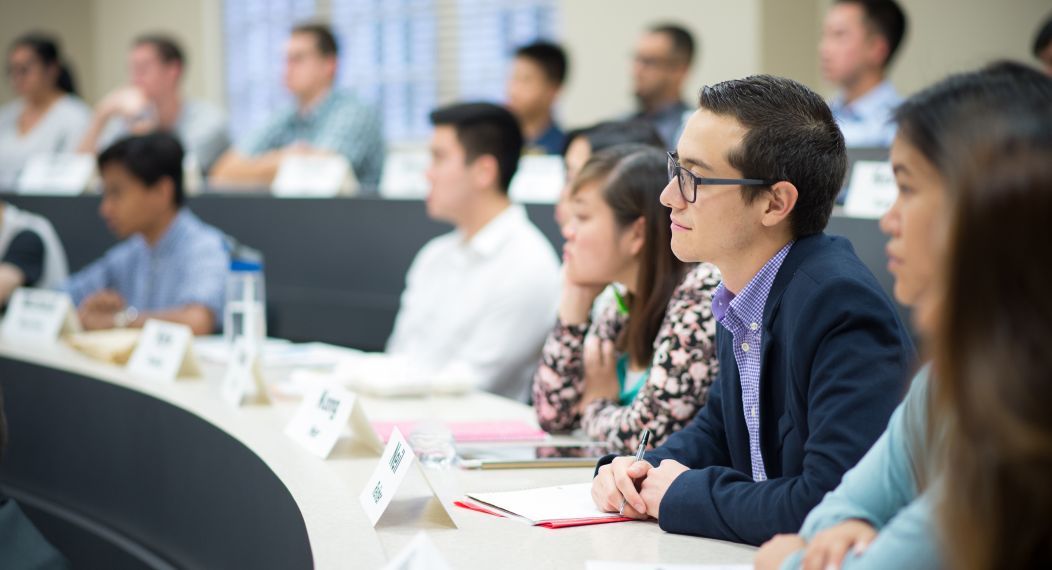
When students graduate and leave the classroom, they enter a world that feels vastly different from what they’ve been used to. Human Resources (HR) professionals play a pivotal role in easing this transition by helping students plan their careers and find employment.
Helping Students Discover Career Paths Early
Most students don’t know what career they want to pursue while still in school. They may have a rough sense of direction, like being interested in science, technology, or the arts, but the specifics remain murky. HR professionals can address this gap by working closely with schools and universities to provide real-world career exposure, allowing students to discover which fields align with their interests and strengths more quickly.
Imagine a local business working with a high school to set up a job shadowing program. A student interested in environmental science might spend a day with a conservation officer, learning firsthand what the job entails. Similarly, a student drawn to technology might join a software development team’s brainstorming session. By offering these experiences, HR gives students a glimpse of different career paths in practice.
In addition to career preparation, many students also need help managing their finances during school. Providing them with advice on budgeting, including information about the best money apps for students, websites offering student discounts, and budget-friendly options for buying textbooks for the upcoming semester, can ease financial stress and allow them to focus more on their future careers. For example, the BookScouter website, which is very popular among students, offers many money-saving tips on their blog, such as where to sell used college books profitably and the best time to sell them back.
Developing Skills Beyond Textbooks
It’s no secret that success in the workplace requires more than just academic knowledge. Degrees are valuable, but they’re not the sole factor that employers look for. HR professionals are essential in helping students build the practical skills needed for the workforce.
Technical or challenging skills, like programming, financial modeling, or engineering design, are often job-specific. Human Resource professionals can facilitate real-life experiences for students via internships or apprenticeships, which give students a chance to put what they learned in class into action in real-life scenarios. For instance, data science students could work on building technical capacities while contributing meaningful projects within an organization’s data management system.
At the same time, soft skills—such as communication, teamwork, problem-solving, and adaptability—are equally vital to business. HR professionals typically offer training programs focused on these soft abilities.
Another example: Consider a technically brilliant student who needs help presenting ideas. HR could organize a public speaking workshop or role-playing exercises where students practice presenting their ideas to peers.
HR can also get creative with skill development. Some companies even use virtual reality (VR) environments to simulate real-life challenges. In these controlled yet immersive scenarios, students can make decisions and see the outcomes of their actions. It’s a safe way to learn from mistakes and sharpen their decision-making abilities in high-pressure situations.
Mentorship and Career Guidance: HR’s Personal Touch
When students are about to enter the workforce, the support they get from HR professionals can make a huge difference in their career decisions. Beyond job postings and interview tips, students often need someone to guide them. This is where mentorship comes in.
Mentorship programs are an indispensable asset of HR departments that enable students to connect with experienced professionals as mentors who assist their transition between school and the workplace. For example, imagine a student who just graduated with a degree in marketing but isn’t sure whether they want to work for a corporation, a startup, or in nonprofit marketing. A mentor with years of experience in the field can help them explore these options.
Connecting Academia to Industry Needs
One of the biggest challenges for students entering the workforce is understanding how the knowledge they gained in school translates into real-world skills. Academic learning can sometimes feel disconnected from the practical demands of the job market. HR professionals can step in to bridge this gap.
For instance, HR might work directly with educational institutions to develop customized training programs that align with industry needs. A business looking for employees with a particular skill set—like digital marketing or data analytics—might partner with a university to design a curriculum that prepares students for those roles.
A theoretical example: A tech company collaborates with a local university to offer a coding boot camp. Students participating in the boot camp gain hands-on coding experience and are mentored by company engineers. This ensures they’re ready to step into roles requiring those specific coding skills by the time they graduate.
HR professionals can also encourage faculty exchanges. Professors could spend time in corporate environments to stay updated on industry trends. Returning to their classrooms, they bring real-world insights, ensuring students learn the most relevant and applicable skills.
Measuring Success: The Importance of Feedback and Improvement
It’s not enough to set up internships, workshops, and mentorships; HR must track these efforts’ outcomes to ensure they benefit students. Metrics like job placement rates, starting salaries, and retention rates can offer a wealth of information. If students who participate in a particular mentorship program have higher job placement rates than those who don’t, HR can take that as a sign to expand the program. Conversely, HR can reassess and adjust the curriculum if a workshop series on teamwork doesn’t seem to improve students’ job performance.
Conclusion
Human Resources is indispensable in supporting students as they transition successfully from academia to industry through early career exposure programs, skill development initiatives, or connecting education and industry. HR plays an instrumental role in shaping tomorrow’s workforce.
